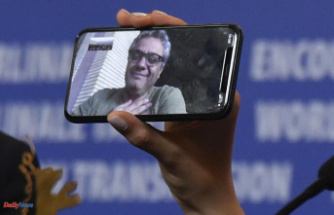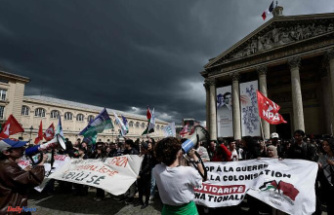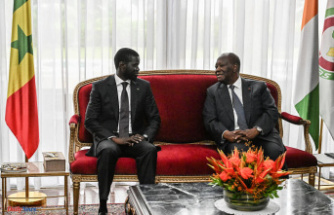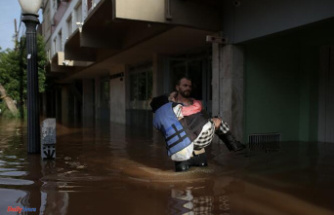The armed gangs who sow terror in the poorest country in the Americas, Haiti, ended up forcing the Prime Minister, Ariel Henry, to resign. The head of government, however, clarified Monday evening that he would continue to manage current affairs until the establishment of a “presidential transition council”. How can we explain the control of gangs in this country of 11 million inhabitants?
Gangs are not a new phenomenon in Haiti. Although they have existed for decades, they have developed particularly since the mid-1990s, thanks to the dissolution of the army, decided by the government which fears military coups.
For experts, however, 2018 marks the tipping point: the government then resorts to armed gangs to put down a vast popular uprising against corruption and for political reforms.
The massacres they commit then reveal their “instrumentalization by power”, explains Frédéric Thomas, researcher at the Tricontinental Center (CETRI), in Belgium, interviewed by Agence France-Presse (AFP).
Haiti has become a “narco-state”, believes Jean Marie Théodat, geographer at Panthéon-Sorbonne University in Paris. Ariel Henry was “objectively complicit in the control of bandits” over the country, he continues, citing the example of the influential gang leader, Jimmy Chérizier, nicknamed “Barbecue”, a former police officer who took the head of the latest violence and recently threatened to start a “civil war” if the prime minister refused to resign.
For the Haitian researcher, “Barbecue is a Frankenstein who has freed himself from his master.” He notes that gangs, now more powerful than political power and law enforcement, have decided to “empower themselves”.
With weapons from the United States, these gangs prosper with drug trafficking, racketeering, kidnappings or rights of passage demanded in the territories they control. In particular, they hold “more than 80% of the capital”, underlines Frédéric Thomas. Their multiple abuses, according to him, led to “the collapse of public institutions” and the assassination of Jovenel Moïse.
“Even if Jimmy Chérizier uses political, even revolutionary, rhetoric, [the gangs] do not have a political and social project,” emphasizes Frédéric Thomas. “What interests them is power and control of territories,” he says, adding that they have no interest in promoting the emergence of “strong institutions” and “legitimate power.” .
The “dropping of Ariel Henry by the gangsters” does not mean that “Barbecue” is seeking to obtain any political function, confirms Jean Marie Théodat. According to him, gang members seek to perpetuate their domination, without meeting international demands or giving up their lucrative activities.
In the long term, Jean Marie Théodat believes that Haiti must mobilize its young people more, particularly through conscription, to strengthen the security services. On the political level, the return of Ariel Henry would have been "one more step in chaos, a total denial of the disorder caused by his usurpation", adds the Haitian geographer, who calls for "giving the population the opportunity to choose your leaders.”
Like the UN, the United States is in favor of deploying a multinational mission led by Kenya to fight against the gangs, while calling for an "urgent" political transition, but Washington continues to rely partly on a political class “very unpopular.” “Strengthening it to fight against armed bands”, to which it is linked, is “completely contradictory”, notes Frédéric Thomas.
A sign that the situation remains complex, Kenya has decided to postpone the deployment of forces planned as part of the international mission. For Jean Marie Théodat, “any foreign mission likely to help us deal with these bandits is welcome”, but it must “inspire confidence”. “However, today, the Haitian people have not really chosen the hand that will help them”, Kenya being “unfamiliar” with this region where it has “no experience”. And, he said, “what can a thousand Kenyan police officers, even aided by a few hundred soldiers from other countries, do against thousands of gangsters armed to the teeth? ".












